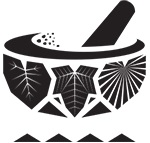‘IMI KE OLA MAU
Disproportionate numbers of our Native Hawaiian population have been consistently overrepresented among those who are seeking or thrust into Western treatment for substance use disorders and mental health issues. Existing systems of care continue to assign treatment within the same western frameworks that have led to this consistent overrepresentation, and do not account for the unique needs of Native Hawaiians, and are not anchored in Hawaiian ways of knowing and being.
Research shows that this inequitable health status results from several complex and interconnected social determinants of health, including historical trauma, discrimination, and lifestyle changes. Research also indicates that re-envisioning treatment for the Native population, utilizing cultural reconnection and methodologies that speak to Native perspectives, is more influential in creating positive health outcomes for Native peoples
In June 2007, Papa Ola Lōkahi participated in a Native Hawaiian Partnership (a community collaboration convened in 2005 by the Co-occurring State Incentive Grant [COSIG]), whose vision is to ensure that Native Hawaiians, their families and communities have access to substance use and mental health services that honor culturally responsive treatment), submitted an application to SAMHSA requesting Hawaii’s participation in its 4th Papa Ola Lokahi Policy Academy on Substance Use and Mental Health Disorders for Native Groups.
This partnership was blessed with the name ‘Imi Ke Ola Mau by Hula Kupuna Aunty Malia Craver. ‘Imi Ke Ola Mau translates “To perpetuate a life of health and healing.” Its visioning process brought together Native Hawaiian organizations, and kūpuna, elders, who paved the way for this work. A strategic plan was formed for the improvement of substance use and mental health outcomes for Native Hawaiians, their families and communities.
Papa Ola Lōkahi utilizes the ‘Imi Ke Ola Mau plan as its foundation:
- In order for Native Hawaiians to heal and recover from substance use and mental health issues:
- We need a sense of place that provides anchors for our values and balance in life.
- We need immediate access to and availability of a safe, healthy environment, which includes the natural elements such as ke kai (salt water), ka wai (fresh water), ke ea (air, sky, and heavens), ka ‘āina (land, soil), and all of the animate and inanimate aspects of nature that make up the physical environment.
- To heal, we need more than just motivational interviewing and other western modalities. The motivation comes from caring for our sources, the ‘āina, and the reward is our own wellness which we perpetuate in all our relationships through caring for the ‘āina (land).
- We need the resiliency and protection our culture provides, in order to prevent relapse; and redefine ourselves away from pathological diagnoses.
- We need a sense of self, retrieved from our past through ancestors, present through purpose, and future through descendants.
- We need our language, traditions, and ceremonies, which provide ways to reconnect to our spirituality and to our concept of our Source.
- We need relationships with our land and other natural resources; our language, our ‘aumakua (deified ancestors), our kūpuna (respected elders) and ‘ohana (family); our roles as men, women, mākua (parents) and nā kamali‘i (children).
- We need not become Western to heal.
Utilizing this ʻike, this knowledge as the foundation of our pathway forward, Papa Ola Lōkahi has begun to re-envision, and conceptualize the igniting of cultural reclamation for our people and provide new healing pathways from substance use and mental health issues.
Healing pathways that acknowledge the historical, cultural, and intergenerational traumas impacting our people, and the manifestation of those traumas today. Ones that recognize and account for the social and cultural determinants of health, and ones that anchor us in who we are as a thriving people.
PROJECTS
Native Hawaiian Substance Use Community Assessment ~ upload in process
Native Hawaiian Substance Use Stakeholder Meetings, Phase 1
Native Hawaiian Substance Use Stakeholder Meetings, Phase 2
AANHPI 'Ohana Center of Excellence
PUBLICATIONS
- Substance Use State Plan, Hawai'i State Department of Health, Alcohol and Substance Abuse Division, October 2022
- Chapter 6, p. 109, Conceptualizing a New system of Care in Hawai'i for Native Hawaiians and Substance Use, 2022
- Daniels SP, Kauahikaua K, Kaio C, Casson-Fisher JN, Ku T. Conceptualizing a New System of Care in Hawaiʻi for Native Hawaiians and Substance Use, HJHSW, Vol 81, No 12, Supplement 3, December 2022
- Webinar: Conceptualizing a New System of Care in Hawaiʻi for Native Hawaiians and Substance Use Watch Powerpoint
- Column: A New System of Care for Native Hawaiians and Substance Use, Ka Wai Ola, September 2022
- A Strategic Plan for the Improvement of Substance Abuse and Mental Health Outcomes for Native Hawaiian and their Families and Communities, 2007
CONTINUING EDUCATION
The goal of these learning opportunities is to improve pilina (connections) across Hawai’i. It is our hope, that through education and outreach, we can embark on a new way to strengthen these pilina, creating an ‘upena (net) of connected services in service to our lāhui.
Many of these sessions feature additional links to resources within each presentation. For continuing education credit, complete the evaluation, attendance verification, and quiz questions provided in the description of each video.
- Playlist of trainings: Recovery & Substance Use.
MEDIA
- Hawaii Free News, January 2023 (starting at 31:43)
GETTING INVOLVED
- Hawaii Opioid Initiative Working Group 8 – Native Hawaiians & Substance Use. To join working group, please register here.
CONTACT
Lilinoe Kauahikaua







